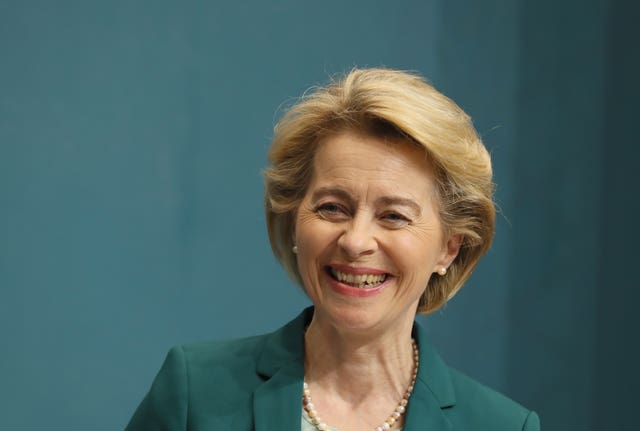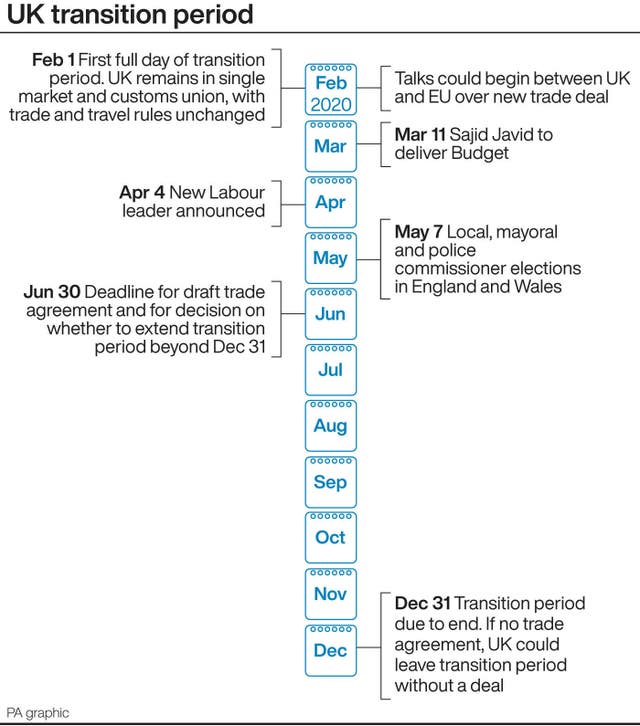Negotiations on a post-Brexit relationship between the UK and EU are approaching stagnation after four rounds of talks.
Michel Barnier, who is leading the discussions for Brussels, lamented “no significant areas of progress” having been made on Friday.
While his British counterpart, David Frost, conceded that they are “close to reaching the limits” of the formal talks, which are taking place virtually because of the coronavirus pandemic.
– Where are we now?
Brexit formally took place on January 31, but the UK is still in the transition period in which it follows EU laws until the end of the year.
The two sides are trying to thrash out an agreement on a future relation to include an ambitious free trade deal.
But after four rounds of negotiations, the end-of-month deadline for asking for an extension to the transition is fast approaching.
If we respect our commitments in the Withdrawal Agreement & the Political Declaration, and if we keep our mutual respect, serenity and determination, I have no doubt that we can find a landing zone.
My comments following this week’s 🇪🇺🇬🇧talks 👇🏻https://t.co/yWJumrFRBr pic.twitter.com/yv20TSTnwo
— Michel Barnier (@MichelBarnier) June 5, 2020
– So what happens next?
Talks will continue but it could soon be time to bring in the bigwigs, the political leaders who would have the power to make real concessions and compromise.
Though no date is set, the summit is expected to be in the form of a video call between Boris Johnson, European Commission president Ursula von der Leyen and European Council president Charles Michel.
European Parliament president David-Maria Sassoli could also join them.
If no major breakthrough is made, all eyes will be on the Prime Minister, who has repeatedly ruled out asking for an extension.

– And what happens if they never see eye to eye?
A senior member of the UK negotiating team said talks could not be allowed to drag on into the autumn without clear evidence that a deal was possible.
Ceasing negotiations would lead to the result everyone says they want to avoid – the UK crashing out of the bloc in a disorderly exit.
While the Government insists it is not a “no deal” Brexit because of the Withdrawal Agreement brokered last year, business leaders are very concerned about leaving without a trade agreement on January 1.
CBI deputy director-general Josh Hardy warned: “Failure to break the deadlock only leaves a choice between an extension that the UK Government has already ruled out or worse, a deeply damaging no deal.”
– What are the main stumbling blocks?
Two of the key issues on which the sides are struggling to find agreement relate to fisheries and the so-called level playing field.
The EU wants to see the status quo maintained for fishing access and quotas, but the UK Government wants Britain to have controls of its own waters.
And on the level playing field, which is aimed at preventing the UK from undercutting EU standards on issues including workers’ rights, environmental protection and state subsidies, Britain believes Brussels is trying to bind the UK to EU law.
Mr Frost said the EU must “accommodate the reality of the UK’s well-established position on the so-called ‘level playing field’, on fisheries, and the other difficult issues”.

– What would a no-deal look like?
If no agreement is reached, and the transition period is not extended, the UK will leave under World Trade Organisation terms at the end of the year.
This would lead to tariffs and quotas on goods coming from the EU to the UK and vice versa, and there would likely be border checks.
Many are fearful of the impact of a no-deal on the economy, especially amid the coronavirus crisis.
CBI deputy director general Josh Hardie said most businesses were unprepared for a “dramatic” change in Britain’s trading relationship with its biggest partner in just six months.




Comments: Our rules
We want our comments to be a lively and valuable part of our community - a place where readers can debate and engage with the most important local issues. The ability to comment on our stories is a privilege, not a right, however, and that privilege may be withdrawn if it is abused or misused.
Please report any comments that break our rules.
Read the rules hereLast Updated:
Report this comment Cancel